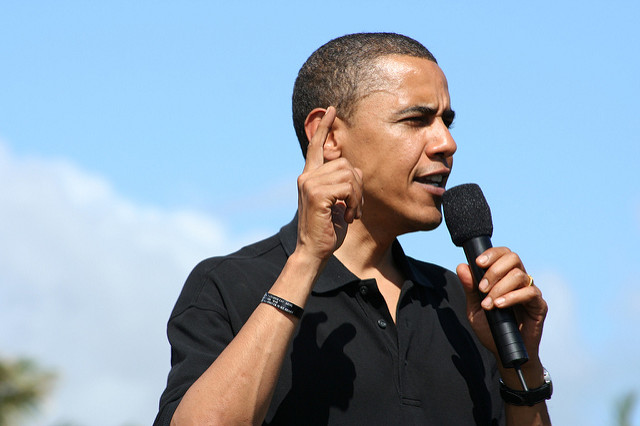
Today, Obama held a millennial outreach summit in an attempt to revitalize Obamacare and grab more young, healthy enrollees. But millennials shouldn’t buy into it. In an op-ed in the Wall Street Journal, David Barnes, Policy Director of Generation Opportunity, speaks the truth about Obama’s event:
“Young Americans aren’t looking for “outreach” and “engagement” from President Obama. We’re looking for affordable health-insurance plans—and ObamaCare doesn’t offer them.”
In order for Obamacare to work, there needs to be a significant portion of young healthy people to offset the cost of older, less healthy people. For a sustainable Obamacare, 40% of all enrollees need to be in the “golden” 18-34 age. However, Obamacare does not have its 40%. According to HHS, only 28% of enrollees are in this “golden” age range. While Obamacare relies on young people, it is the young people who get the brunt of the deal. Here’s why:
1. Pay this or Pay that
Young people are forced to pay one way or another. Either they buy unaffordable insurance or pay a penalty. Even if a young person is healthy and does not need insurance, they do not have the option to not pay for health insurance and save their money. Money will be spent towards Obamacare regardless. If a millennial chooses to not participate in Obamacare, they must pay the individual mandate tax penalty. In 2016, the annual fee was $695. So, in essence, as a millennial you must pay $695 or 2.5% of your household income (whichever is higher) for “noncompliance” or pay more for health insurance you may not use in order to subsidize older, more costly people.
2. One size fits all
The costs of Obamacare are just way too high. Young people are paying for insurance they simply do not need or does not fit their needs. They are stuck having to buy a more expensive option and get more coverage than necessary. If a millennial does not have coverage that meets the requirements of Obamacare or what fits them best, then they will be charged the individual mandate anyway.
3. Unstable
The health insurance marketplace is far from stable. Insurers are hiking premiums and fleeing exchanges. Insurers operating on Obamacare exchanges have requested an average premium hike of 24 percent across the country, according to independent analyst Charles Gaba. Even as they request higher premiums, many insurers have announced plans to flee exchanges or reduce their involvement, leaving enrollees with fewer options and more expensive insurance. Due to insurmountable losses, the nation’s largest insurer, UnitedHealth, will be pulling out of 26 of the 34 exchanges it participated in last year. Following United’s footsteps, Aetna announced that it would pull out of all but 4 states and remain in only 242 counties. Additionally, Obamacare co-ops are continually collapsing. Seventeen have completely collapsed, and only 6 of the original 23 are hanging on by a thread. So even though you may have insurance today, who knows if it will still be up and running tomorrow?

